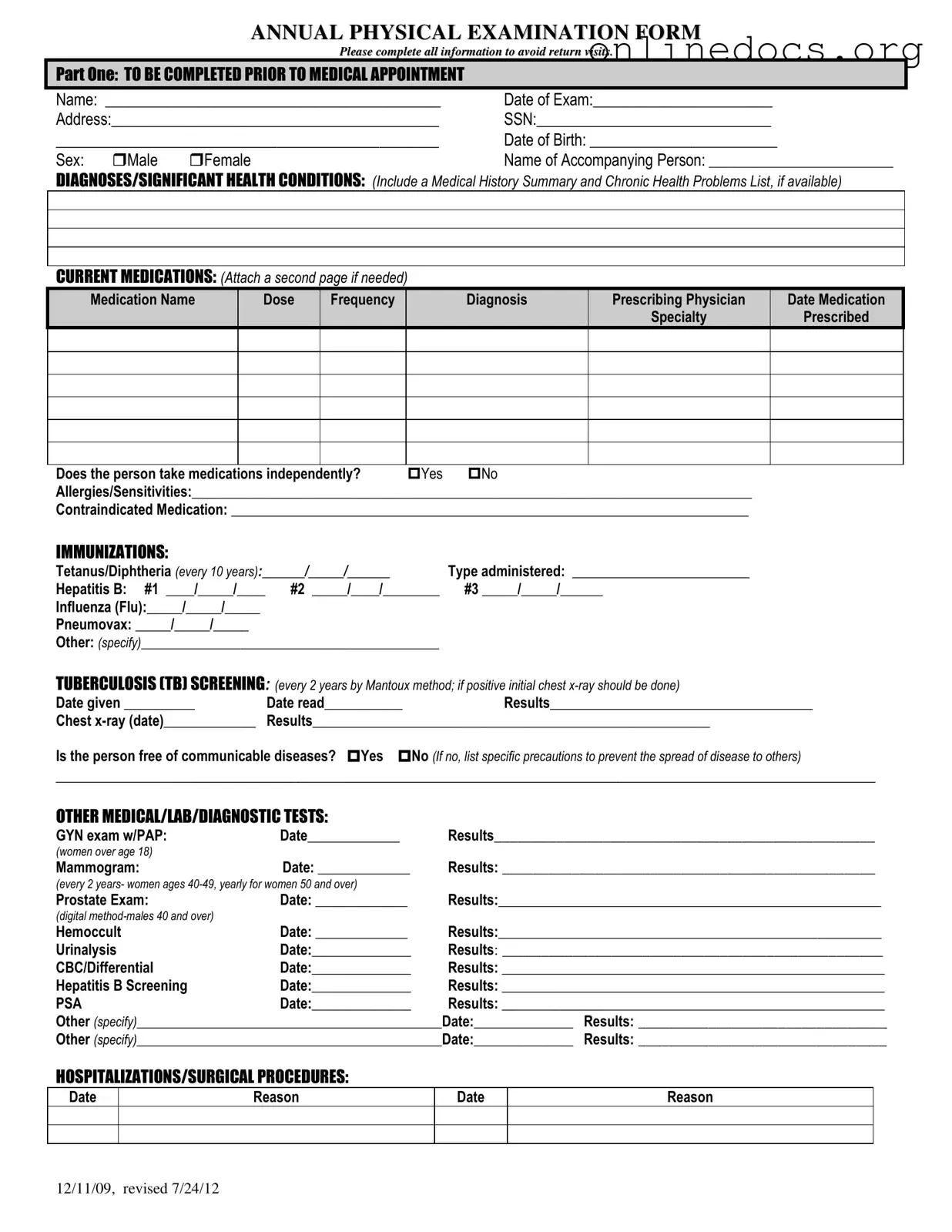Filling out the Annual Physical Examination form can be straightforward, but many people make common mistakes that can lead to delays or additional visits. One significant error is leaving out personal information. Failing to provide your name, date of exam, or address can result in confusion and unnecessary follow-ups.
Another frequent mistake involves the Social Security Number (SSN). Some individuals either forget to include it or miswrite it, which can complicate insurance claims and medical records. Always double-check this section for accuracy.
Many people also neglect to list all current medications. This includes not only prescription drugs but also over-the-counter medications and supplements. Providing incomplete medication information can hinder the physician's ability to assess potential drug interactions.
Additionally, individuals often skip the allergies section. This omission is critical, as it can lead to serious health risks if the healthcare provider is unaware of any allergies or sensitivities. Always ensure that this section is filled out completely.
Immunizations are another area where mistakes frequently occur. Some people forget to update their vaccination history or fail to include the type of immunization administered. Incomplete immunization records can delay necessary vaccinations or screenings.
When it comes to the tuberculosis (TB) screening, individuals sometimes forget to fill in the date given and date read. This information is essential for tracking TB exposure and ensuring proper follow-up.
Another common error is not indicating whether the individual is free of communicable diseases. Leaving this section blank may lead to misunderstandings about health risks during the examination.
Many people overlook the section regarding hospitalizations and surgical procedures. Failing to provide this information can prevent the physician from understanding the patient's complete medical history, which is crucial for effective treatment.
Finally, individuals often forget to sign and date the form. This simple oversight can result in delays, as the form may be considered incomplete without a signature. Always ensure that every section is filled out and that the form is signed before submission.
